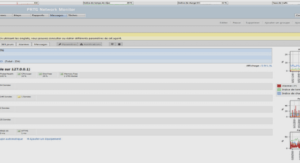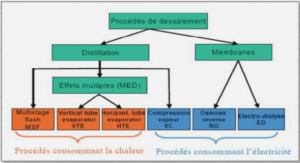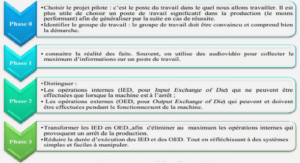HOPE IN TWO AFRICAN NOVELS
The intellectuals and the new leaders
In fact, as soon as Africa became independent, the conflict started in all continents and there was also misunderstanding everywhere between the leaders and the intellectuals. For that this quotation is very relevant. 34 “Did not take long, after independence, for writers to realize that something had gone terrible wrong. They had experienced decolonization as a time of massive transformation and opening up of options. Yet, looking around them in the aftermath, they quickly began to perceive that their ‘revolution’ had been derailed (….), some writers responded to these harsh realities of independence society with disillusionment that weary, ‘post-political’ cynicism. The literature of disillusionment grew if we look at the literature of the immediate postcolonial era in Africa, we see that it out of a feeling, experienced by many intellectuals , that they were becoming more and more socially marginalized as the drama of the post colonialism unfolded.”27 The new leaders betrayed the intellectuals who fought vehemently for freedom and justice by having new allies and became very distant from the mass. In these situations, the intellectuals felt the necessity to expose the incompetence and these corrupt leaders while drawing the attention of general people. They organized public thoughts, park debates and fought for social good in order to stand against social problems. In fact being a writer is not an easy task because it requires lot of sacrifices and patience. They are the voice of the voiceless. Therefore, the African writers were totally against the colonial masters and the African leaders too. Dictatorial leaders consider literature and its produces as a threat of their regime. That is why you see writers who are complaining every where in the world, even 27 Charl Cantalupo World of Ngugi Wathiong’O 1993,P 12. 35 nowadays African writers are murdered, incarcerated, expelled from their country or their works are banned or censored. In fact Ngugi wa Thiong’o play I will marry when I want is a perfect example. It was banned in theatres by Kenyan authorities in the 1980’s and later it had been published. Ngugi was also imprisoned when he wrote Devil on the cross. Furthermore Ngugi and Achebe, as pillars of African literature, think that the African values are to be rewritten to replace the fake ones written by the colonialists. Ngugi began to reinterpret the book of the British textbook but he was detained by his leaders and quotation of the Victoria British is a perfect example. The reinterpretation of the British textbook history of the 1960 to place Mau in a heroic role at the center of the stage became a key strand in an ideological struggle quarterly waged in Kenya recent years, namely in the university and cultural sphere. In 1977, the novelist Ngugi, then chairman of the literature department of Nairobi University, co-authored a play done in the Kikuyu language by the peasants of Kamiriithu Community Educational Center on the historical theme. He was detained by Kenyatta in an attempt to crash the growing challenge from intellectual’s nonconformity especially among the peasants. University lecturers who have done historical research on Mau Mau have been among the first targets of the government’s current repression in the university. Five lecturers were then detained without trail and one imprisoned for six years for possession of subversive literature. In addition to that, Ngugi went to exile in order to run from Kenyan new system. In fact this cynical behavior toward the writers is not a new fact; the new leaders adopted it from their former masters, exactly,the way they have copied betraying the people who vote for them . If we go back to the past we find out that during the colonialism the first generation of African writers used to hide behind different pseudonyms in order to denounce the colonial system. We 36 could cite Alexander Byidi Awala’s the poor Christ of Bomba, Ferdinand Oyono’s houseboy to name a few. Indeed the African intellectuals, especially, the writers faced lot of problems, in Nigeria or in Africa in general, freedom of expression has been under pressure. For instance, in Nigeria some writers like Wole Soyinka,Ogaga Ifowodo,Akinadesokan,Kunleajibade etc. were imprisoned while others like Ken Saro Wiwa and Mamman j.Vatsa were cruelly assassinated .As Ayo Kehind said in the Sword and the Pen that there is a seeming cold war betwen the sword (ruler ) and the pen (the writer)in Nigeria. Though African writers are still active and especially stand against dishonest leaders and social ills, despite the menace and violence against them. In 1980 Nigeria does not progress as it supposed to; because there was lot of corruption, murder etc.. . Most Nigerian writers rise to the occasion and challenge government’s excesses that are detrimental to the well-being of the nation and her citizens. Actually, what Nigerian writers are doing to sustain the evolving democracy is indeterminate. Some people wonder what the nation would have become in the hands of the neo-colonial rulers of the continent if the writers have hung up their pens. Among those is Williams who said that: African writers have resisted oppression and injustice on the continent with great force and courage. Literature is fundamentally incompatible with tyranny. In its purest state, literature is subversive of authority and authoritarian rulers. Its joyous and spontaneous celebration of life, it’s near anarchic contempt for regulation and regimentation makers it the most natural enemy of dictatorship. While the dictator seeks a total domination of men and society, literature often seeks their total liberation (1996:350). 37 Therefore, the indispensable role of literature for effectuating communal restructure in Nigeria is more than ever before required. It is not longer a question of how the British colonialists ‘ruined’ the county, but of how Nigerian leaders have aborted the great hopes and expectations of independence. Anthills of the Savannah is Achebe’s most sustained treatment of political issues in post-independence Nigeria. The president of a fictional African state, Kangan (unmistakably Nigeria) is intoxicated with power. In the Trouble with Nigeria, Achebe affirms that the ‘trouble’ with the country is “simply and squarely a failure of leadership”; Anthills of the Savannah is the fictional exposition of this source of failure. In the text, there is his anti-public-sphere temper, does not tolerate dialogue, constructive criticism, egalitarianism and communication. He does not allow the public sphere to exist in his domain, because it is seen as an anathema. Achebe’s Anthills of the Savannah shows post African disillusionment in a dictatorial independent Nigeria. Achebe’s writing plays a great role in the political transformation of African societies in particular his county. Anthills can be seen as assort of reversal, Achebe imagines possibility or even a civil party from the masses rather than from a newly enlightened elite .Anthills of the savannah deals with the story of three men who have known each other for long at Lord Lugard College, a school named one British responsible for the unity of Nigerian state in 1914.In the novel it is the institution primary responsible where the native elite were trained. Later, these three men became very powerful political figures in Kagan. Kangan is an imaginary West African country where Achebe sets his novel. Sam who is one of the three men went on to study the British military college Sandhurst and then became a dictator, Christ Oriko is the minister of information of Sams’s government and Ikem Osodi is the editor of the Gazette, the most news paper in Bassa kangan’s capital.
Quest for liberty and justice
Liberation is a kind of weapon or way of resistance and according to Gustavo Gutierrez, it declares the ambition of the oppressed people and social classes which give importance the conflict facet of the economic, social and political process, that puts the at odds with wealthy nations and oppressive classes. They work of neocolonial African writer’s base on freedom and justice. This struggle is between the comprador petit bourgeois political elite class that took power from European and intellectuals and mass. For that Ayi Kwei the Beautiful Ones are not yet Born, Alioune Fantoure’s Tropical Cycle, Festus Layes Bound to Violence, Achebe’s A Man of the People, Petal of Blood by Wa Thiong’o to name a few are writers, who are seeking freedom by the means of their pen. Ngugi’s Mau Mau Gueria Song and his committed theater staging peasant and workers complaining about their hard condition of life and their disillusionment in Neocolonial Kenya. At the same point of view Devil on the Cross touches very kind of topics such as the mass and the leaders, the corrupt exploiters and exploited, liberty, justice and responsibility. The case of Waringa can be a perfect example. She was abused, exploited and over used but she is now free because she fought from beginning until the end. Therefore, revising the past of Wariinga is very important to understand her courage. Once in 1954 her parents were arrested for being involved in anti colonial fight. Later her parents were freed and acquired a property in Ilmorog. She was brought up by her ant and her uncle, but when she finished her secondary school she met an old rich man who pregnant her and abandoned her. She then became a secretary in boss Kihari’s office. She lost there her job because of refusing boss Kihari’s advances, later Jacinta became Gaturi’s fiancé the son of boss Kihari. They paid visit to Guturi’s parents and Jacint discover that Gaturi’s father is the one who pregnant her. The old man wanted to buy her silence and stop the marriage but Wariinga shot him dead. Therefore, as the diction said every cloud has an unseen benefit. 42 Despite all the diffituies Wariinga has passed, she succeeded in reaching her target and was to restore dignity, justice, to human being in particular woman. She eliminates the Devil and all its allies but struggle continues because the Devil’s roots are deep inside that may take long before she digs them out. Along with issues of class analysis and class struggle, in Devil on the Cross Ngugi tends to concentrate on themes of resistance, revolution and national against neocolonialist oppression. Concurrently, he seems to confirm that it is only through the political and economic liberation of its people that the liberation of Kenya will be possible. Pointing out that “the voice of the people is the voice of God” (Ngugi, Devil 63), Ngugi wants tell us here that Kenyan liberty is very important and necessary and above that it is vital for the liberation of the country as a whole. In Devil on the Cross this liberation turns out to be “a total immersion in struggle of Kenyan workers and peasants for the liberation of the products of their labor for the benefit of Kenyans” ( qtd. In Slaymaker 95). Elleke Boehmer highlights how Ngugi’s liberty work follows a particular political commitment towards a total liberation of the country. Besides, she believes that “whereas in the early novels the concept of the nation was identified with a leader figure, a Kenyatta type of patriarch, it is now seen in terms of the ‘people’, bound together by their shared history and cultural traditions” (144). Significantly, Ngugi’s (early nationalism or “populist nationalist program for a new Kenya” 144, in Devil on the Cross has turned to be overtly revolutionary. According to Ngugi’ Marxist ideology, the achievement of political and social liberation of Kenyan society lies therefore in the possibility of resistance and revolution by the masses. In Devil on the Cross, Ngugi’s idea of proletarian revolution rest on a “complete and total liberation of the people and completely socialized economy collectively owned and controlled by people” (homecoming 13). So to reach this goal and its fulfillment 43 relies on the unity and collective struggle of the masses as well as on collective and national consciousness. The common action of the peasants and workers as they marched on the Devil’s Feast reflect the social collectivism that characterizes the proletarian struggle against capitalist forces. In other words, their actions symbolize what Marxists consider the terms of the capitalist struggle. On the other hand, it represents an epitome of the necessary revolution armed resistance of the masses. An issue that Ngugi explains well throughout his works: Democracy and justice can only be achieved when the various interest group voice their opposition and fight for them. Until democratic-minded Kenyans, workers, peasants, students, progressive intellectuals and others, unite on the most minimum basis of a patriotic opposition to imperialist foreign domination of our economy, politics and culture, things will get worse, no matter who sits on the throne of power. No country can consider itself politically independent for as long as foreign interests dominate its economy and culture. ( Ngugi, Homecoming 28)32 In Devil on the Cross, the awakening of the masses against the capitalist forces lies in the spread of Marxist principles and values of common wealth and prosperity as well as of revolution and liberation: “the fruits of each worker’s labor went into his own pocket. But at the end of the month would contribute a fixed sum to a common pool….. No one in the community of workers lived on the sweat of another. Everyone received according to his ability, his reputation and the quickness of his hands”- Ngugi, Devil 222). For instance, Muturi tries to 32 Ngugi Wa Thiongo ,homecoming,p 28. 44 persuade the people of Ilmorog of the fact that it is their future benefit to take an action whenever their common interests are threatened by any part of the corrupt capitalist elite. All through the novel, he functions as an authentic revolutionary figure that heads and awakens “the great organization of the workers and peasants in Devil on the Cross tells them why they should stand up and fight: As a worker, I know very well that the forces of law and on the side of those who rob the workers of the products of their sweat, of those who steal food and land from the peasants. Let me tell you, I’m sure that the system of theft and robbery will never end in this country as long as people are scared of guns and clubs. We must struggle and fight against the culture of fear. And there is only one cure: a strong organization of the workers and peasant of the land, together with those whose eyes and ears are open and alert. My friends, you should join us too. Bring your education to us, and don’t turn your back on the people. That’s the only way. (204-05)33 The main pillars and members of this organization are those whom Ngugi believes as representative of the holy trinity of the workers, the peasants and students. Significantly, their unity has eliminated the foundation colonialism and has led the chasing of the local and foreign capitalists away from the cave at the Devil’s Feast. In these terms, the total liberation of Kenya as a whole becomes possible only if all Kenyans will listen to the “voices of rebirth and revolution” Ngugi, Devil 230) that is the only way which can make their struggle against capitalism and neo-colonialism. However, these voices become effective and 33 Ngugi, dvil on the cross p.204-205. 45 successful only because of the “revolution art unity of workers and peasants” (230). The revolution and resistance put up by the masses, their massive thirst for liberation, shows that workers, peasant and students of Kenyan can determine their fate and future as they “ all come from the womb, the common womb of Kenya” (Ngugi, Devil 234). Class struggle and socialist revolution not only led a new future of freedom and independence from capitalist and neo-colonialist forces, but also to a new African national identity. That is why Ngugi always mentions the necessity and true need of unity and collectivism of the proletariat which is the last determination and struggle against capitalist forces to liberate itself. According to Ngugi, the union of the forces of the Kenyan masses will most certainly lead to a new future for both Kenyan and the Kenyans, a future where “the hunted would become the hunter and the hunter would become the hunted” (Ngugi, Devil 251).
Dedication |



